William Shatner’s Next ‘Bold’ Adventure: Facing Death
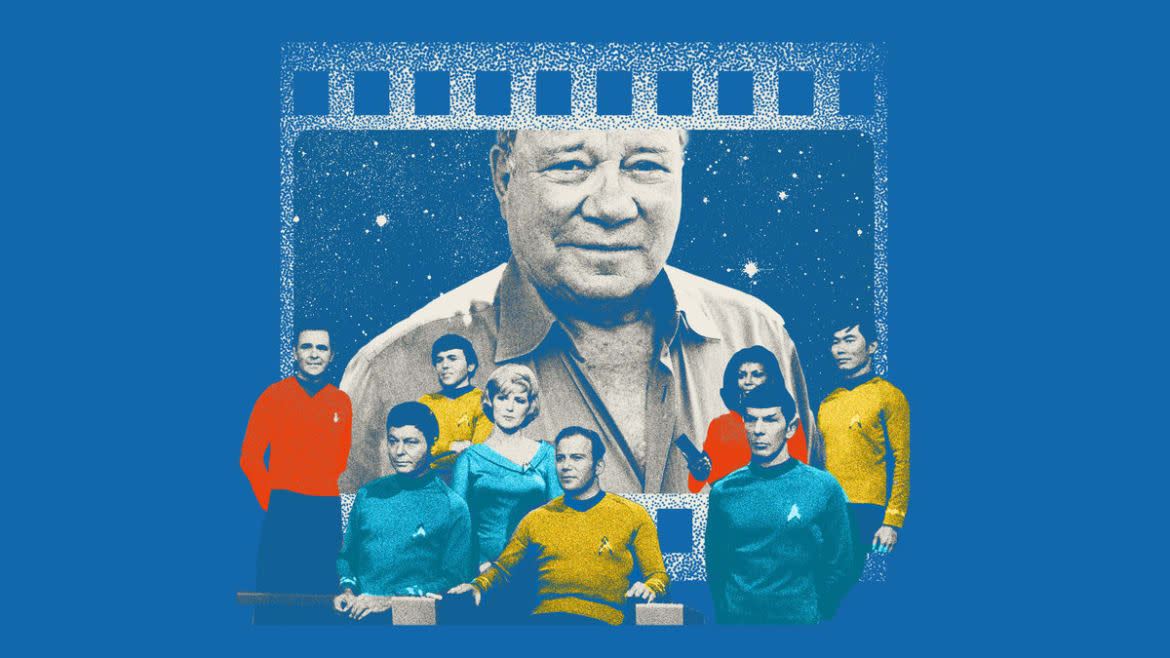
- Oops!Something went wrong.Please try again later.
William Shatner has spent a lifetime “boldly going” where maybe not no man, but few have gone before.
The phrase—“to boldly go where no man has gone before”—was, of course, popularized in the original Star Trek series, which debuted in 1966 and starred Shatner as Captain James T. Kirk, the principled shepherd of the starship Enterprise. Shatner narrated the famous line during each episode’s opening credits, indelibly tying his voice not just to pop-culture iconography, but to an ethos that has inspired generations of fans.
A new documentary, William Shatner: You Can Call Me Bill, which is now in theaters, charts Shatner’s career and the philosophies he’s developed about life and the world over the course of his 93 years on Earth—and a short spell in a spaceship above it. In the film, we learn that the phrase has also given him marching orders as he navigated a lifetime’s triumphs and tragedies. It served him well in a career spanning seven decades, including studio-system films of the ’50s and ’60s, rebounding from joblessness after starring on Star Trek, and rebranding as one of Hollywood’s most self-aware—and self-effacing—celebrities, always in on the joke of what it means to be William Shatner. (There’s a reason so many of us have booked trips through Priceline.com.)
You Can Call Me Bill features Shatner recalling that experience going where, truly, few men have gone: his 2021 spaceflight where, at age 90, he became the oldest human to fly into space. Shatner’s sense of wonder mixes with melancholy as he looks back at that feat in the film, in which he is startlingly, profoundly candid about his mixed feelings about a life well-led and his inevitable next bold adventure: death, and what that might mean.
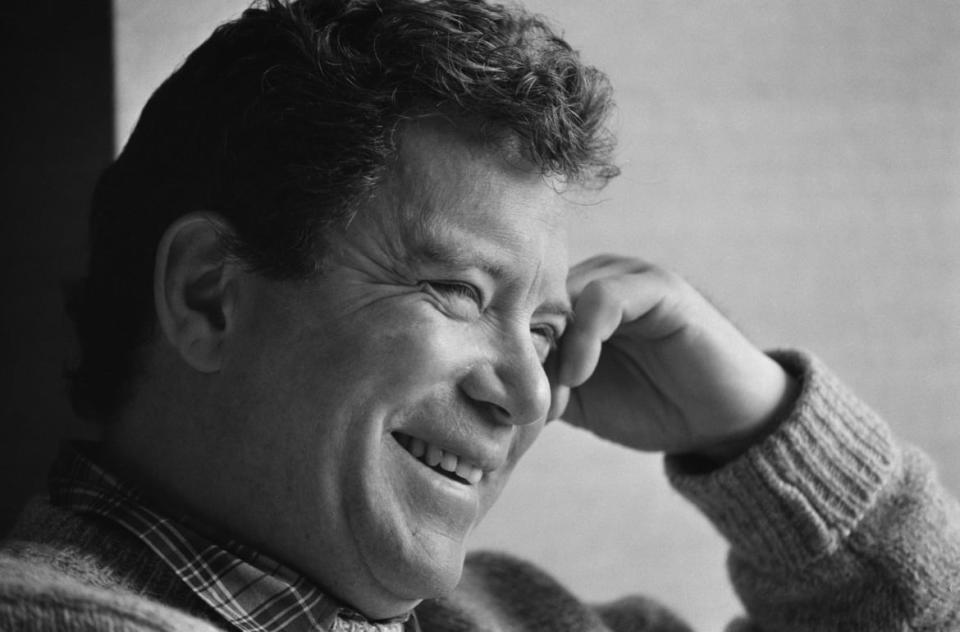
William Shatner, circa 1988
“I’m 93, so there’s an end of the road there,” Shatner told The Daily Beast’s Obsessed in a Zoom interview about You Can Call Me Bill. He recounted a scene from a movie he had watched recently. He couldn’t remember the title, but he remembered the sequence: A car is speeding down a Florida causeway that connects its southern islands. A plane had blown up a part of the road miles ahead of the car. “The car is racing towards the hole in the causeway. We know they’re going to go over, unless they see it. And they’re not going to see it.”
“That’s what I’m thinking of in my life,” he added, looking wistful. “There’s a hole in my causeway, and I don’t know when it’s going to hit, but I haven’t got that long.”
‘Civil War’ Director Alex Garland Isn’t Shocked by the Discourse
A nonagenarian with a prodigious career and pop-culture legacy, this is obviously not the first time Shatner has been approached to participate in a documentary about his life. He’s always turned the offers down. “It seems so final,” he said. “It seems like you make it, and then you die.”
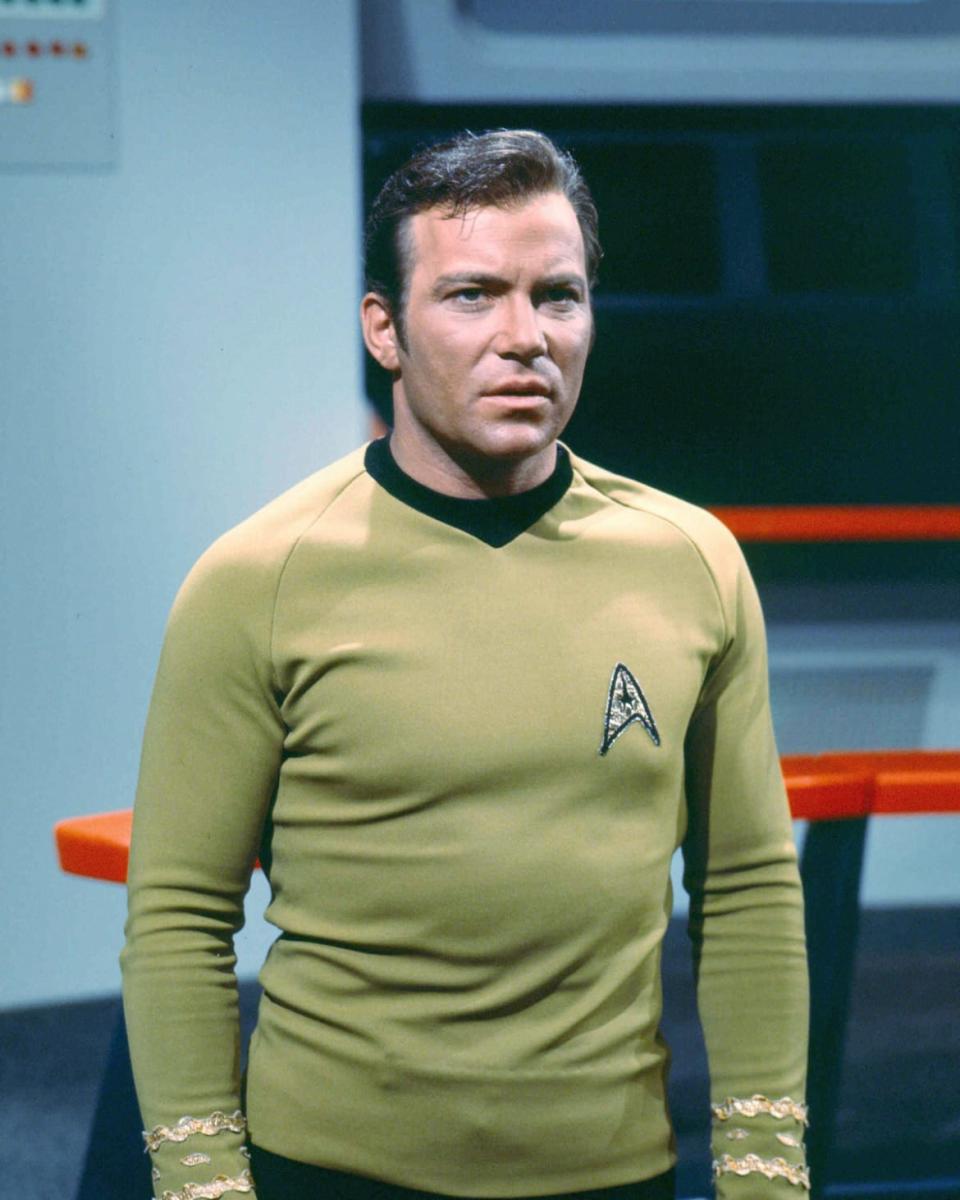
William Shatner in Star Trek
The difference this time was how the film was made. Production company Legion M financed much of the documentary through crowdfunding, allowing fans to receive a percentage of any profits the film makes. “I’ve never crowdfunded anything,” Shatner said. “It seemed like begging.” But he found something innovative and intimate about this being a shared project with the fans, those who have invested in his career and to whom he can now return that investment by giving them access to his story and beliefs through his interviews in the film.
There was another convincing factor: “This documentary is my love letter to my family,” he said. If he ever was going to do a project like this, he didn’t want it to be one of those superficial pop documentaries where the subject gate-keeps any deep or dark anecdotes or thoughts. “I wanted to be honest with them about how I felt about what I did, and answer the questions from my soul. I’m not sure that other people who do this have that attitude. This came from deep within me. It’s kind of like I’m naked in a way, but I thought that was the best way to go.”
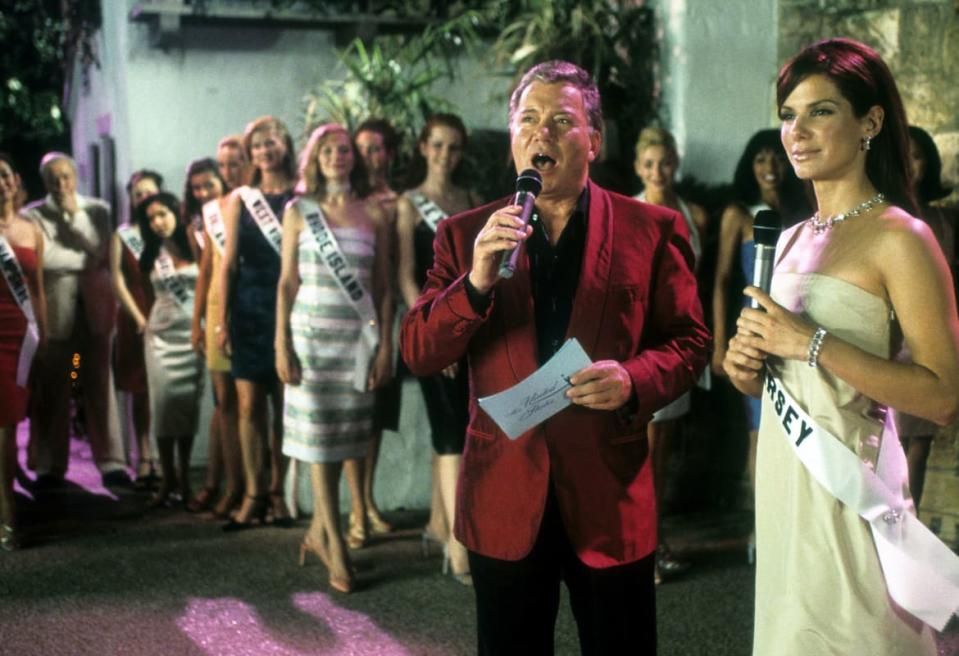
William Shatner and Sandra Bullock in Miss Congeniality
So You Can Call Me Bill doesn’t just have Shatner waxing poetic on a rundown of his IMDb page. The opening moments find him marveling at the “preciousness” of a world that has evolved over billions of years, then decrying its “extinction” that is happening “by mankind’s own hands.” He talks almost immediately about death: “The occasion of your death is meaningless. You’re one of billions upon billions who lived and died on earth.” And, perhaps of most interest to Star Trek enthusiasts, we quickly learn his thoughts about whether we’re alone in this universe: “Our ignorance is so profound. And the more we know the more we realize how stupid and how egotistical human beings are thinking we’re the only ones.”
It’s not that the documentary eschews biography, the stories of how he was cast in Star Trek, or how he feels about people imitating his speaking voice: “People’s supposed imitation of me… I don’t hear it.” (He still, though, has a sense of humor about it.) But these are plot details, bullet points onto which he colors his most intense thoughts about mortality—musings that are almost brutal in their bluntness, yet also refreshingly sage in their honesty about what it means to have lived a life.
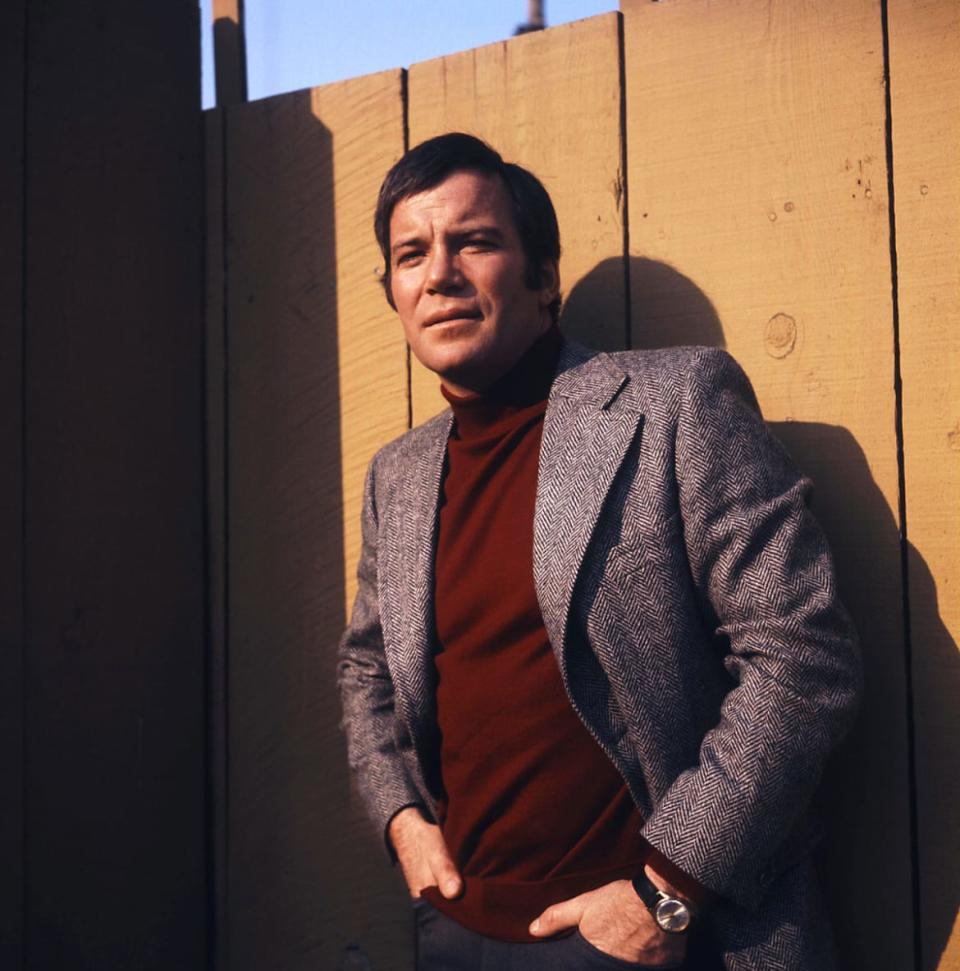
William Shatner, circa 1975
“If we consider that we’re born all alone, we all die alone.” Shatner told Obsessed. “Do we ever find a partner in life that is so close and meaningful that you’re not alone? Or is our condition to be alone and to endure it, because that’s part of the pain of life? There are enjoyments, which abound: good food, good company, good work. I mean, there’s so much joy waiting for us. Can we mix the two together and participate in all of it? Can we participate in the sadness and loneliness that we all feel and still vibrate to the magic of life?”
‘Curb Your Enthusiasm’ Finale: The Story Behind the ‘Seinfeld’ Twist
We stare at each other quietly for a beat—stunned silence on my end, and him understanding that questions like these need time for rumination. After a few seconds, he looks out the bright window over his left shoulder and looks back into the camera, smiling.
“I’m looking out a window right now as I talk to you,” he said. “I see green trees. I see a city. I see mountains. I see the sky with the birds, that the Earth is throbbing with life, and it’s waiting to be discovered. What makes me so sad, which was brought to mind when I came off of the spaceship that I went on, was the absolute realization. I’ve known this, but it was dramatically shown to me when I looked down at the planet [from space]: how intricately connected everything is.”
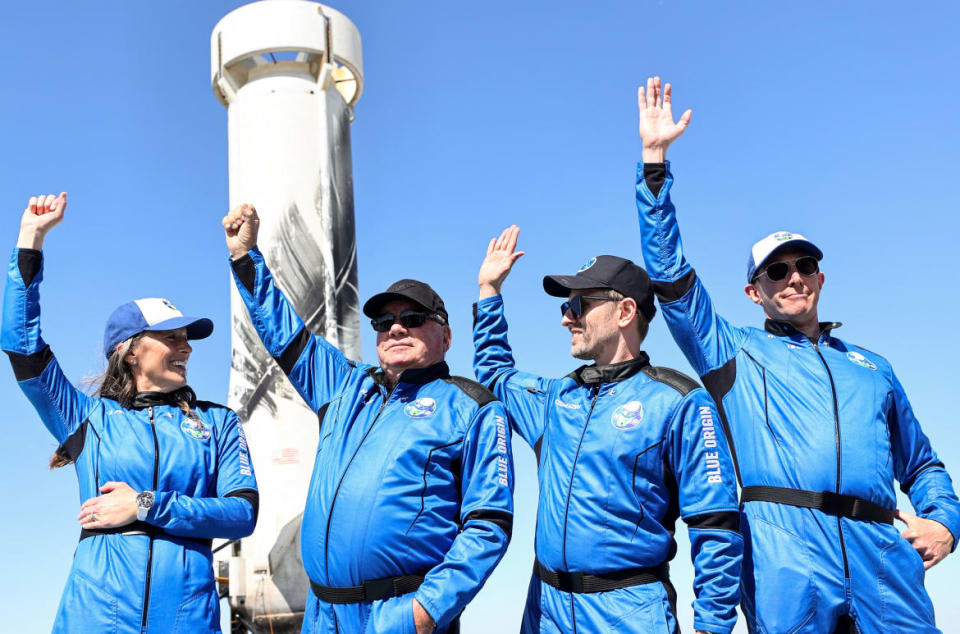
Blue Origin vice president of mission and flight operations Audrey Powers, William Shatner, Planet Labs co-founder Chris Boshuizen and Medidata Solutions co-founder Glen de Vries wave on the landing pad of Blue Origin’s New Shepard after they flew into space on October 13, 202.
So what does “to boldly go” mean now, then? What does it mean for someone who has been saying it for over half his life—someone who has legitimately been where none of us will ever dream to go? Now, as Shatner faces down the last stretch of the causeway, does it mean something new?
“I always meant to go boldly into life as best you can,” he said.
There are so many people “that you and I know,” he said, that face disappointment, tragedy, or heartbreak, and wallow in the negativity, stalling their lives. “It’s so easy to hide in your bed and not participate in life.”
What a waste.
“I don’t think you come back,” he said. “I don’t think there’s life after death. I think this is it. This is the journey you take. This is the sadness, the joy, the ecstasy, the love that you feel in this one participation in life. So you have to take the bad with the good. Let the bad wash over you. And I’m saying this theoretically, because so many times in the bad parts, it’s awful. It’s hard to do. But if you keep that in mind—I will do this; I will participate in life and not hide; I will boldly go into that hurt locker again—that’s the only way to do it. The only way to live.”
Get the Daily Beast's biggest scoops and scandals delivered right to your inbox. Sign up now.
Stay informed and gain unlimited access to the Daily Beast's unmatched reporting. Subscribe now.

